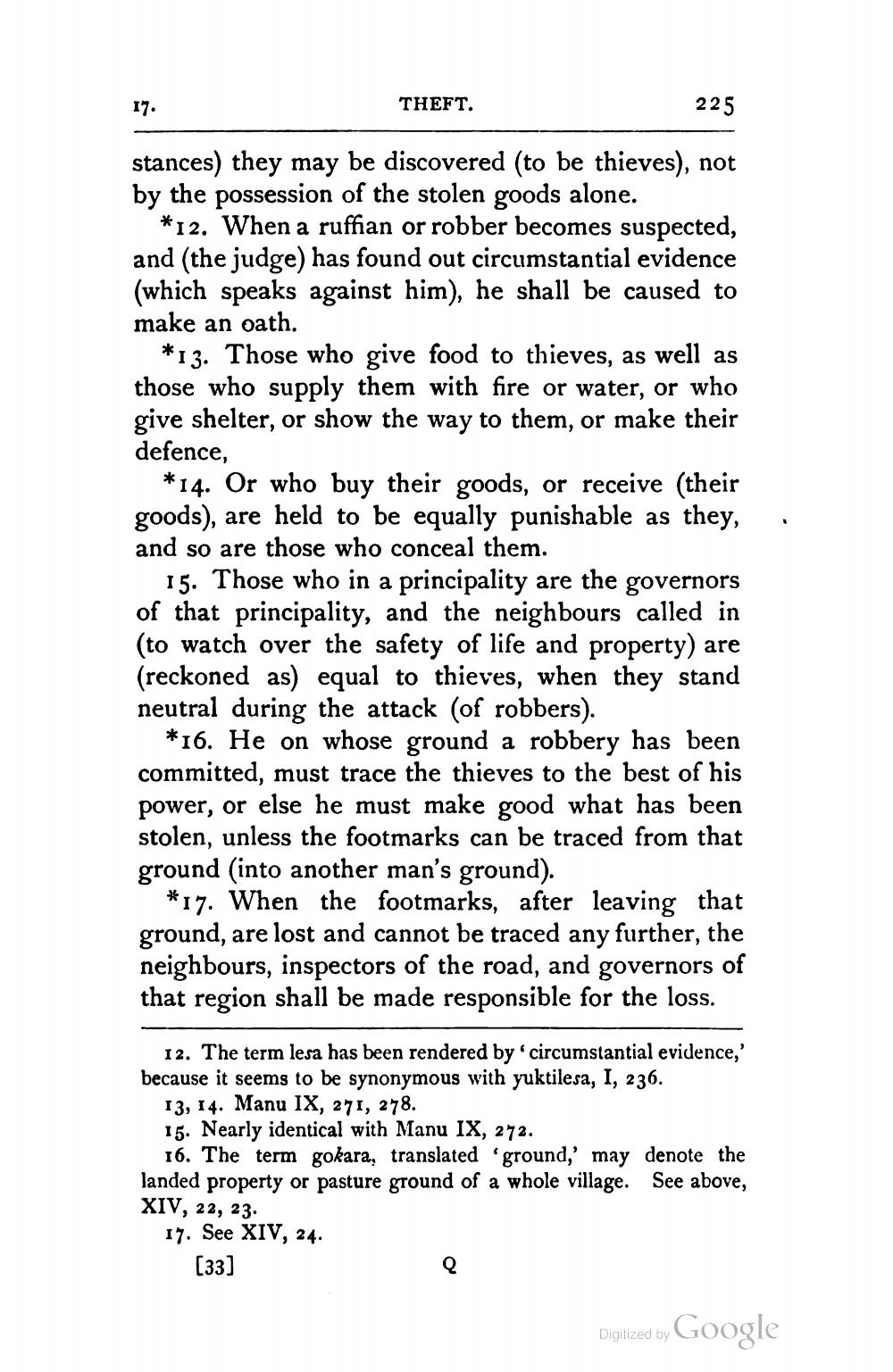________________
17.
THEFT.
225
stances) they may be discovered to be thieves), not by the possession of the stolen goods alone.
*12. When a ruffian or robber becomes suspected, and (the judge) has found out circumstantial evidence (which speaks against him), he shall be caused to make an oath.
*13. Those who give food to thieves, as well as those who supply them with fire or water, or who give shelter, or show the way to them, or make their defence,
*14. Or who buy their goods, or receive (their goods), are held to be equally punishable as they, and so are those who conceal them.
15. Those who in a principality are the governors of that principality, and the neighbours called in (to watch over the safety of life and property) are (reckoned as) equal to thieves, when they stand neutral during the attack (of robbers).
*16. He on whose ground a robbery has been committed, must trace the thieves to the best of his power, or else he must make good what has been stolen, unless the footmarks can be traced from that ground (into another man's ground).
*17. When the footmarks, after leaving that ground, are lost and cannot be traced any further, the neighbours, inspectors of the road, and governors of that region shall be made responsible for the loss.
12. The term lesa has been rendered by circumstantial evidence, because it seems to be synonymous with yuktilesa, I, 236.
13, 14. Manu IX, 271, 278. 15. Nearly identical with Manu IX, 272.
16. The term gokara, translated 'ground,' may denote the landed property or pasture ground of a whole village. See above, XIV, 22, 23. 17. See XIV, 24.
[33]
Digitized by Google




